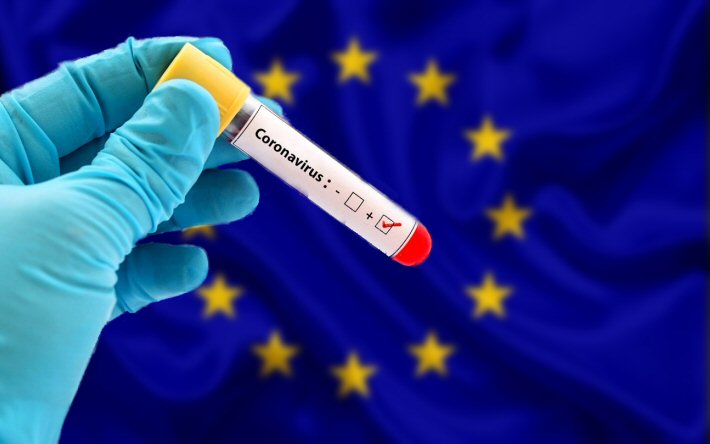EU solidarity during the coronavirus pandemic 2020
Krisztian Liszka | 11 May 2020
Today, exactly 70 years ago, the Schuman Declaration let the building of what we know today the European Union begin: “Europe will not be made all at once, or according to a single plan. It will be built through concrete achievements which first create a de facto solidarity.”
The coronavirus pandemic raises the question, how does the European solidarity look like today? Did Robert Schuman’s idea become true?
The institutional system of the Union changed indeed through the decades as more and more member states became the part of the Union. Societies of the member states have also different structures and the technological development is much higher than it was 70 years ago. But the principles that are at the heart of the regulatory system are basically the same. These principles, especially the principle of solidarity can not only be found behind the creation of the single market or in the dimensions of the Energy union, but it seems to appear during a real crisis like the Coronavirus pandemic of 2020.
The solidarity related to the COVID-19 pandemic can be captured both at the EU level, and the level of member states. At the EU level the President of the Commission Ursula von der Leyen has established the coronavirus response team that helps the actions of many different strands in the EU. The response team’s focus is on three main areas: the medical field, the field of mobility and transportation and the field of economy. The Commission created a strategic RescEU stockpile of medical equipment from EU budget which was later delivered to Italy, Spain and Croatia. Furthermore, the Commission with the approval of the Council has sent €2.7 billion from the EU budget in April to support the EU healthcare sector. EU solidarity did not stop at the borders of the EU: Eastern neighboring countries and countries of the Western Balkans, the targets of potential EU expansion also have received immediate financial assistance to mitigate the socio-economic impact of the coronavirus crisis.
Member states of course also did everything they could to protect their citizens. Besides the lockdown measures and the support of their healthcare system, member states helped each other in treating patients, protecting healthcare workers and citizens and bringing people home. Germany and Luxembourg have been treated critically ill patients from France, Italy and the Netherlands. Helicopters from the Luxembourg Air Rescue transferred French intensive care patients to Hamburg, Germany. Doctors and nurses from Romania and Norway have been dispatched to Bergamo, Italy with the organization and financial support of the EU Medical Corps of the Commission’s coronavirus response team. Under RescEU, Romanian medical personnel have been sent to Lecco hospital, Italy. While Austria, Czechia, France, Germany and Slovakia sent masks and protective suits to Italy and Spain, Latvia also helped its neighbors with medical equipment. Austria and Hungary have sent equipment to Ukraine, Moldova and to the Western Balkan countries partly via the EU Civil Protection Mechanism.
Member states and the EU Civil Protection Mechanism co-financed over 269 repatriation flights repatriating nearly 60,000 EU citizens. Most of the EU member states participated and brought home the citizens from around the world. Repatriation was carried out inside the EU as well by the help of local police and ferry operators for example in Poland and Germany.
Despite the equipment and medical personnel were needed by each of the member states to tackle down the virus, remarkable support was provided by the EU and by each member state. It was possible because of the time lag of the peak of the virus and the different capacities of the different regions. The EU solidarity showed itself in action led by the Commission which not only provided financial support but created many platforms to exchange information among others of demand of equipment between member states.
The pandemic is not over yet and new questions are rising related to it: can the EU address the consequences of the pandemic together? Can EU member states tackle down together a possible economic crisis?
The consequences of the coronavirus crisis are unpredictable for sure but the behavior of the EU and certain member states during this pandemic certainly promises hope.










Leave reply